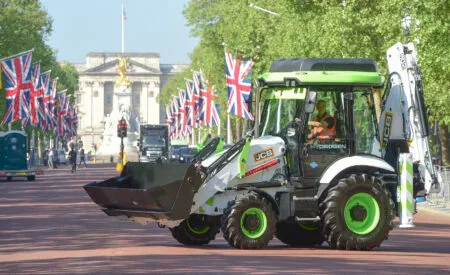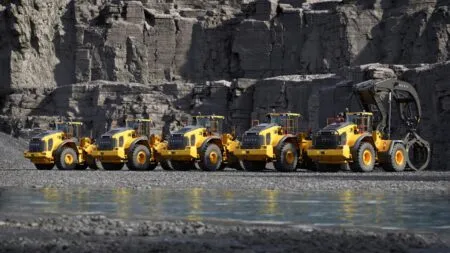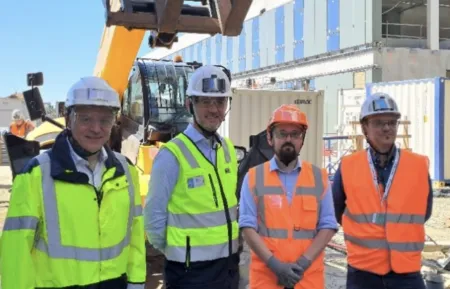“There are still uncertainties in different regions of the world and particularly in Europe, but the good news is that figures are telling that Europe is picking up”, said Eric Lepine, president of CECE (Committee for European Construction Equipment) at a press conference held at Intermat in Paris this week.
In 2014, the European construction equipment industry was already back to significant growth, albeit coming from low levels. For 2015, CECE is forecasting that the level of 2014 is to be maintained as further growth is mainly expected to come from hard-hit markets like Spain, Portugal or Italy, whereas matured markets like the UK, Germany or Scandinavian countries, which experienced already robust growth in 2014, will likely remain stable.
The outlook for France, one of the biggest construction markets in Europe, is however rather gloomy for 2015 investments there have almost come to a standstill; rental companies which belong to the industry’s major customer groups, do not show promising signs of buying activities.
“Looking at the longer term, 2016 should see a continued slow recovery of our industry in Europe”, predicted Lepine. “The construction equipment sector is still showing a huge disparity between several European countries but CECE believes that the gap is not getting bigger.”
In global terms, the bright spot for the industry is North America. As Europe is an important supplier to the USA, several companies should benefit from the positive market development.
In addition to calling for changes to the proposed Stage V engine emissions regulations (more of this in next week’s newsletter) Lepine said a major obstacle for tree trade on the European Internal Market remains the problem of non-compliant machines coming to Europe. Having conducted a walkaround prior to the show’s opening, CECE found non-compliant machines on seven of the 45 booths it inspected (some of them from European OEMs, as well as those from China) and was able to ensure that the machines were subsequently clearly labeled as being non-compliant.
According to a CECE survey, one out of three companies is facing lost sales due to this problem. “A good market surveillance system enables a shift from unfair price competition between machines that are not complying to same standards to a fair competition based on quality amongst machines that are compliant”, Lepine said.
“As resources on market surveillance are low in the member states, EU legislation must be enforced and policed. This is why CECE keeps on calling on the European Commission to keep the issue on the agenda and to improve market surveillance legislation and enforcement.
“The association works on the market surveillance topic in a rather practical way directly in the construction sector by making inspections at trade shows and auctions or by providing information about dangers and risks when buying non-compliant machines. CECE has also started an initiative to call on rental companies and operators to form a joint force.”
April 24, 2015




